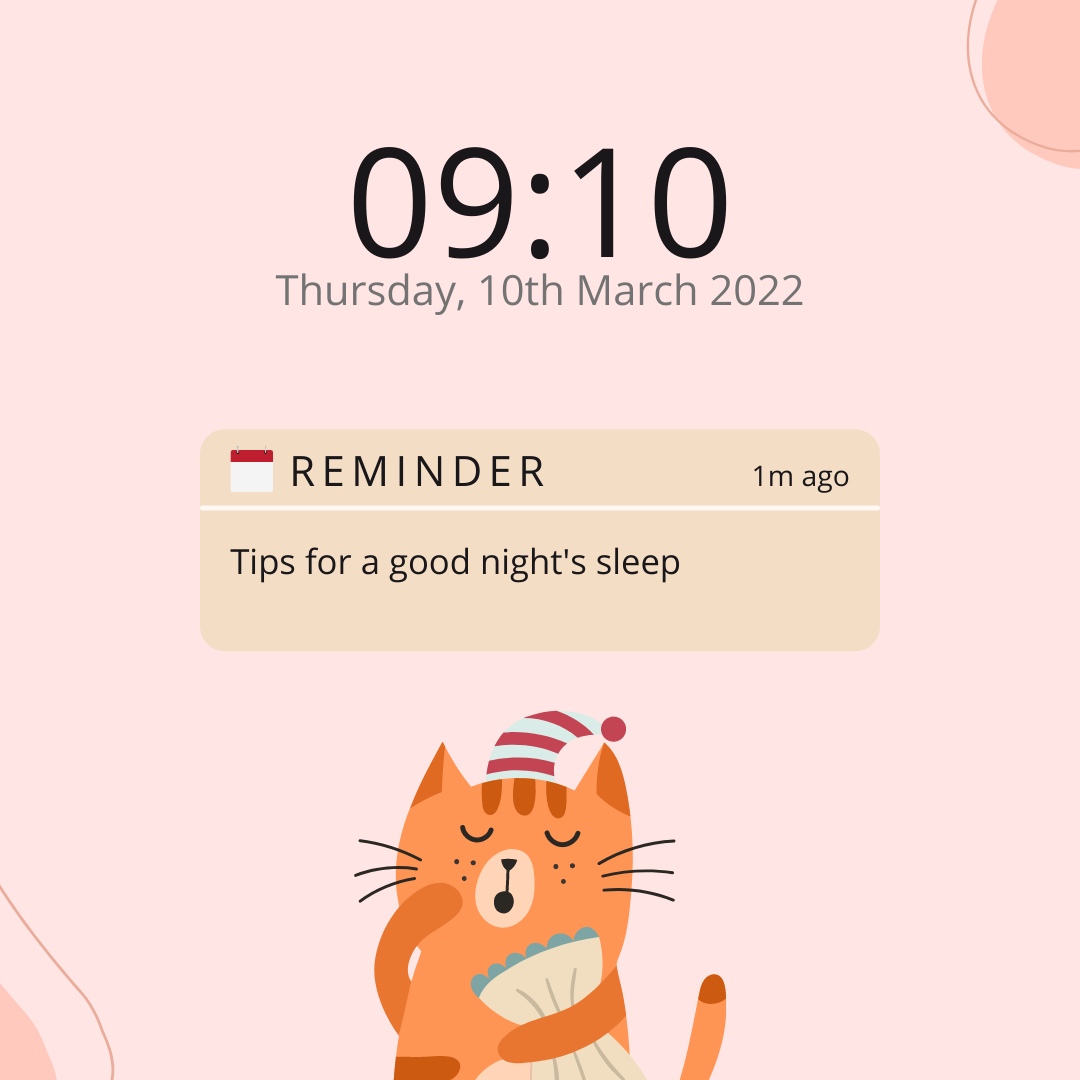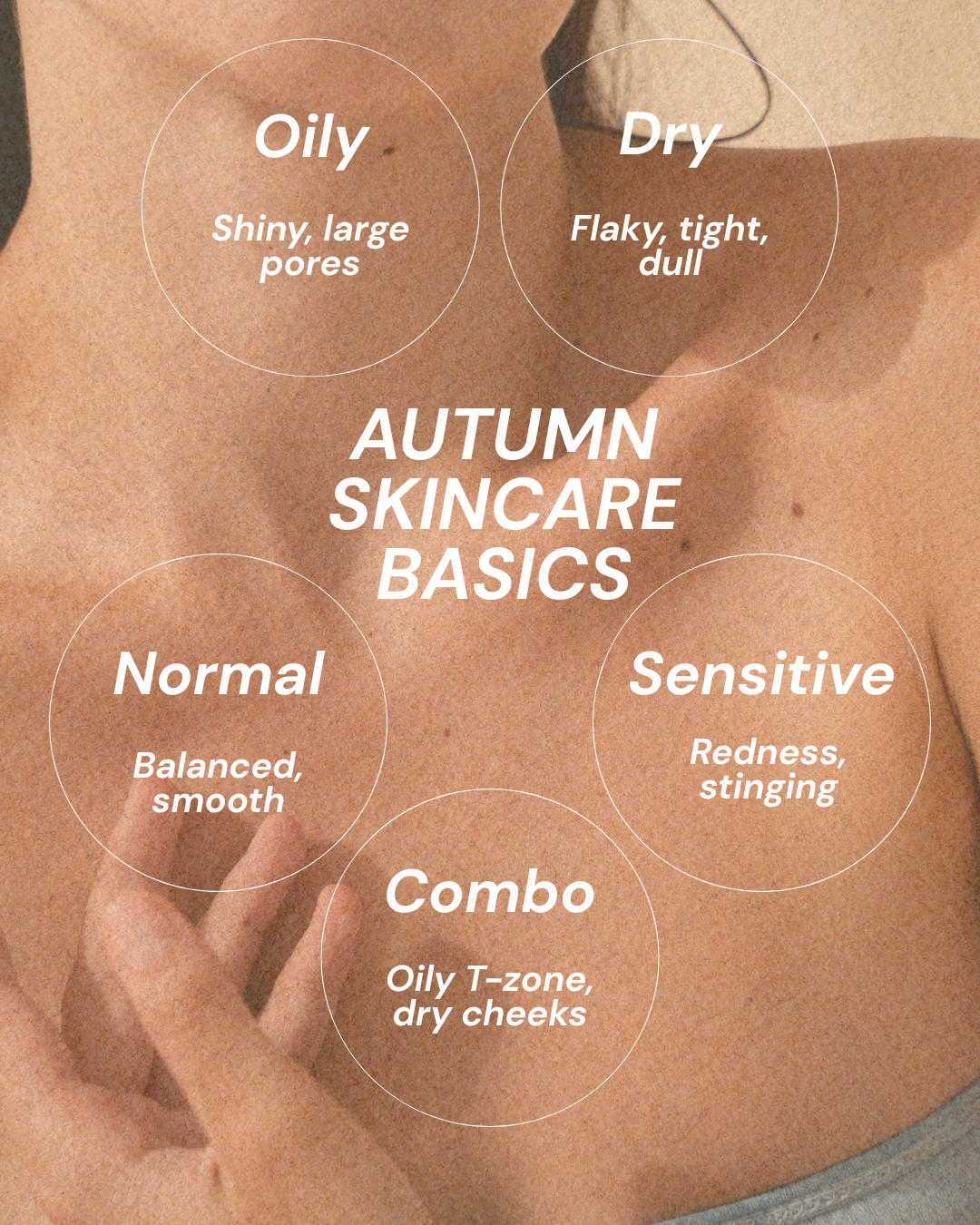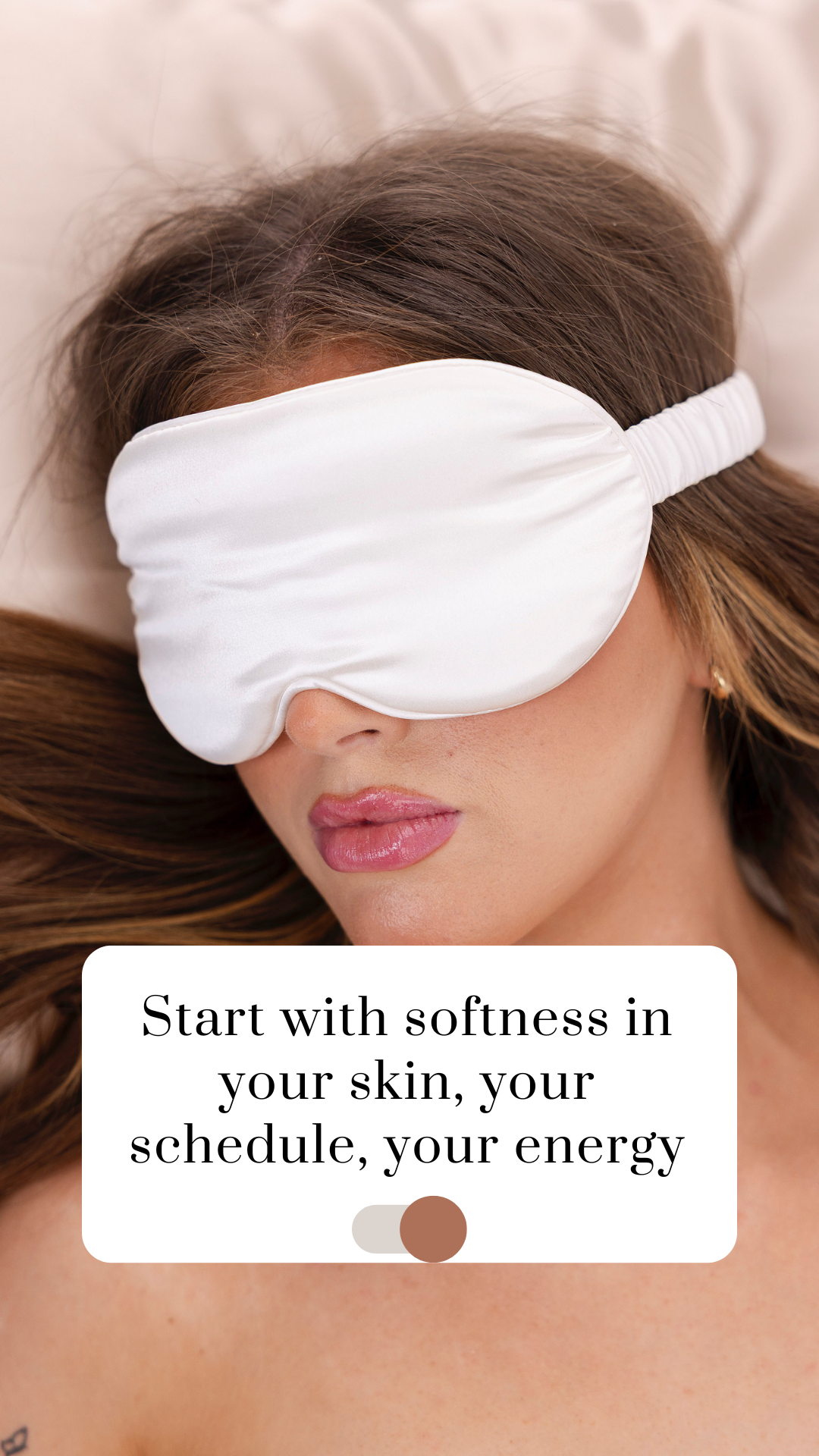A good night’s sleep is vital for a healthy and happy person. But, sometimes, it’s not easy to get to sleep or even have a good sleep. I think we can all agree that if we don't get a good night's sleep, we are not going to be pleasant to be around. So, here are some tips to help you get a good night’s sleep.
● Stick to a sleep schedule - this means going to bed and waking up at the same time every day, even on the weekends when you feel like you want to sleep in. As well as, making sure you are reducing your blue light exposure in the evening and getting enough bright light exposure during the day. As these can help with keeping your body clock on track.
● Pay attention to what you eat and drink - this will help by making sure you eat enough food during the day and not eating a heavy meal right before bed. Try to make your main meal at lunchtime as it is better for your digestion. You should also watch out for your caffeine intake and try not to consume any too late in the day as this can also affect your sleeping schedule. Your liquid intake can also affect the way you sleep as drinking right before bed can cause you the need to pee during sleeping hours (and we all know that waking up to go and pee during the night is terrible).
● Create a restful environment - Trying to optimise your bedroom environment so it is a relaxing space will help you with falling and staying asleep. You can do this by making your bedroom into your sanctuary, with calming colours and soft lighting. The temperature of your room can also be a factor in why you are not getting a good night’s sleep. The optimum temperature to get a good night's sleep is between 15°C and 19°C. Set the mood before you go to bed by having a relaxing shower or bath to signify that it is time to sleep. If all of that fails you, it might be time for a change in your mattress or pillows. An old mattress and pillows can have an impact on your sleep as well, so when was the last time you bought a new pillow or mattress??
● Limit daytime naps - Yes the beloved nap might have to be forgotten as napping during the day, whether it is an irregular nap or a long one needs to be stopped. These naps are affecting your body's internal clock and can upset your sleeping schedule at night time when you should be sleeping.
● Include physical activity in your daily routine - taking part in a physical activity during the day also helps your body with going to sleep at night. This is because you are working off any pent up energy that you have. Just try not to do it right before bed.
● Manage worries - This is what keeps most people up at night the worrying. This could be worrying about what you did that day or what is going to happen tomorrow. Or a childhood incident that keeps you up at night (we all have them). So, why don’t you try meditating before bed, this will help clear your mind and relax your body. Hopefully, this will set you up for a good night’s sleep.
● Rule out a sleep disorder - try talking to your doctor about your sleeping habits, there might be an underlying condition that you are ignoring.
Hopefully, there are some tips you can add to your sleep schedule to improve your sleeping. Or help you work out where you might be going wrong. We can all benefit sometimes from having extra help when it comes to sleeping.









